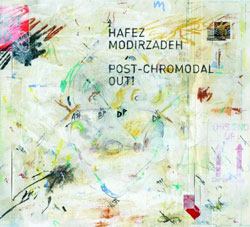
The next step in Iranian-American saxophonist Hafez Modirzadeh's quest to create a seamless cross-cultural exchange of musical structures between the Persian dastgah and American jazz.
Out of Stock
Quantity in Basket: None
Log In to use our Wish List
Shipping Weight: 3.00 units
Sample The Album:
Hafez Modirzadeh-alto saxophone
tenor saxophone
Amir ElSaffar-trumpet
Vijay Iyer-piano
Ken Filiano-bass
Royal Hartigan-drums
Guests:
Danongan Kalanduyan-kulintang
Faraz Minooei-santur
Timothy Volpicella-electric guitar
Click an artist name above to see in-stock items for that artist.
UPC: 808713004427
Label: Pi Recordings
Catalog ID: Pi 44
Squidco Product Code: 16613
Format: CD
Condition: New
Released: 2012
Country: USA
Packaging: Cardstock gatefold foldover
Recorded on February 15th-16th, 2012 at Park West Studios, Brooklyn, NY by Jim Clouse.
"Post-Chromodal Out! is an important new release from Pi Recordings that represents the next step in composer/saxophonist Hafez Modirzadeh's 30-year quest to create a seamless exchange of musical structures across all cultures. It is the culmination of a system he calls "chromodality," which Modirzadeh originally developed to integrate Persian tones with Western equal temperament to further explore harmonic possibilities in jazz. He has since expanded his concept to encompass a "post-chromodal" approach in which all kinds of intervals co-exist; one with meta-cultural potential that allows each musician to use his own distinctive voice to explore music from a full palette of tonal possibilities. The result is not simply some sort of mash-up; it is no less than an effort to altogether transcend cultural differences.
The post-chromodal concepts were first put into practice by Modirzadeh with Iraqi-American trumpeter Amir ElSaffar in their co-led project Radif Suite (Pi 32), which the New York Times called "scintillating... a radical cultural exchange" and "thick with ideas and inspiration" by the Los Angeles Times. Here, as on Radif, Modirzadeh and ElSaffar utilize extended technique to achieve intervals between major and minor. Through the use of alternate fingerings and changes in embouchure, they are able to subtly manipulate pitch, allowing them to break free of the boundaries of equal temperament into new tonal orientation. Post-Chromodal Out!, however, takes the concept one step further through the introduction of a piano re-tuned to variations on Persian temperaments devised by Modirzadeh. Set with three-quarter tones (not quarter tones, but large half-steps, or small whole-steps) integrated with intervals common to equal temperament, the instrument requires the pianist to take a completely new approach. Leaping headlong into this music is pianist Vijay Iyer, who takes on the re-tuned instrument with an improvisatory mastery befitting his own reputation for combining jazz with the music of different cultures. Modirzadeh had this to say about Iyer: "I have approached many pianists over the years, but Vijay was the only one to physically sit down at a beat-up old upright I had retuned, to trust in the possibilities, and make it happen. His confidence to move through vulnerable realms demonstrates great mental endurance, collaborative spirit, patience and love. He applied enormous will and understanding, taking on what is at stake with uncompromising determination." The band also includes Ken Filiano on bass and royal hartigan on drums, both of whom have worked with Modirzadeh for over 25 years and each a seasoned explorer of cross-cultural musical possibilities in his own right. Also on board are guest artists Danongan Kalanduyan on the Filipino kulintang, Faraz Minooei on santur, and Timothy Volpicella on electric guitar, who help to further establish the meta-cultural nature of this music.
Modirzadeh, who is of Iranian-American descent, grew up mostly in Northern California and started playing saxophone at the age of 12. He spent his teenage years hanging out at clubs like the Keystone Korner in San Francisco, seeking guidance and inspiration from many of the saxophone legends who passed through town like Sonny Stitt, Dexter Gordon, James Moody, Joe Henderson, and Sonny Simmons. After graduating college he studied for a time at New England Conservatory before returning to California to continue studying the Persian dastgah with master musician Mahmoud Zoufonoun. These teachings helped convince Modirzadeh to pursue his own path in jazz, one steeped in the musical traditions of Iran. He received his masters from UCLA before moving to the East Coast in the mid-1980s to try out the New York jazz scene and to pursue a doctorate at Wesleyan University. It was during this time that he developed his original chromodal concept, which was subsequently the subject of his doctoral dissertation. In New York he played with groups such as Charlie Persip's Superband and Fred Ho's Afro-Asian Ensemble but overall found that attempts to try out his new concept were mostly met with disdain. He tells of a typical scene: "I went to a popular jam session in lower Manhattan to try this concept in public. Before the end of my first chorus, the leader of the session pulled the horn out of my mouth and dragged me off the stage by my neck strap, yelling 'You can't just get up here and play like that!'"
Modirzadeh would eventually move back to California, where he is now a Music Professor of World Cultures at San Francisco State University. As years turned into decades, and although awarded two NEA Fellowships and a Fulbright, still, the feeling never escaped Modirzadeh that his life's work was slowly dying on the vine. The story might have ended there if not for a serendipitous visit to Ornette Coleman's home in New York City in 2007. Modirzadeh had been interested in finding out how it was that after years of developing his own musical approach through Persian and various other non-western systems that he would somehow arrive at a tonal language similar to Coleman's. A single afternoon visit turned into days of discussion and playing, leaving Modirzadeh convinced of the need for a universal "post-chromodal" approach that breaks free of all cultural barriers. Consequently, Coleman invited Modirzadeh to play with him at the 2007 San Francisco and Monterey Jazz Festivals.
A year later, the reinvigorated Modirzadeh met Amir ElSaffar at a recording session in New York. According to ElSaffar their connection was immediate: "Our chemistry was uncanny, unlike any I had experienced with any other musician. Beyond our similar cultural backgrounds, there was a resonance in his sound, and openness and acceptance in his approach that encouraged creativity and spontaneity every time that we played together." ElSaffar proceeded to study with Modirzadeh, and their partnership results in the release of Radif Suite in 2010.
Vijay Iyer says of Modirzadeh: "The scope of Hafez's synthesis of concepts across cultures is staggering. There is great detail in his critical engagement with traditional intervallic systems, tuning systems, and modes, and there is also a grand sweep to his vision across disciplines and historical eras. In spite of its technical complications, there is genuine heart to this music and a real spiritual clarity. Modirzadeh is not simply a 'scholar' or 'musicologist,' but a genuine artist, with a profound, lifelong stake in the unification of research, creative work, and personal inner quest that is expressed in his music."
Post-Chromodal Out! is comprised of two suites: "Weft Facets" by Modirazdeh and "Wolf and Warp" by James Norton, who was commissioned by Modirzadeh to compose an independent work with the intention of demonstrating the expansiveness of this approach to re-tuning. When asked the reason for his urgent imperative to re-tune the piano, Modirzadeh replied: "The standardized temperament for piano, as beautiful as it is, carries an unbalanced weight of influence over players and listeners, leading many to believe that there is no other resonance to work with but this one. This creates a value system that is unjust and ultimately limits the discovery of other, more personal tuning possibilities. By retuning the piano - the one instrument that imposes a dominant influence on the world's music - the musician is freed to explore all tonal possibilities." The result is music that is like nothing that has been attempted before, one that promises to shake the harmonic foundation of Western culture's tempered system."-Pi Recordings
Artist Biographies
• Show Bio for Hafez Modirzadeh "Saxophonist/theorist Hafez Modirzadeh has performed, recorded, published and lectured internationally on original cross-cultural musical concepts which include "Convergence Liberation" (in Critical Studies in Improvisation, 2011), "Compost Music" (in Leonardo, 2009), "Aural Archetypes" (in Black Music Research, 2001), as well as "Chromodality" (for Wesleyan University, 1992). Twice an NEA Jazz Fellow, Dr. Modirzadeh received a Senior Fulbright Award in 2006 to work with Flamenco and Gnawan traditions in Andalucia and Morocco, and again in 2014, to research Turkish Makam harmonization in Ankara. He is currently a Professor of Creative/World Music at San Francisco State University." ^ Hide Bio for Hafez Modirzadeh • Show Bio for Amir ElSaffar "Composer, trumpeter, santur player, vocalist, and bandleader Amir ElSaffar has been described in the New York Times as "the celebrated trumpeter and composer who explores vital connections between jazz and Arabic music." A recipient of the Doris Duke Performing Artist Award and US Artist Fellowship, and Hodder Fellowship at Princeton University, ElSaffar has earned an international reputation for his work combining jazz and western classical music with the microtonal Maqam music of Iraq and the Middle East. His six piece Two Rivers ensemble and 17-piece Rivers of Sound orchestra, combining Western and Arabic instrumentation and musical languages, have released five critically acclaimed albums and have toured throughout the U.S., Europe, and the Middle East. ElSaffar has also composed numerous works for chamber ensembles, symphony orchestras, jazz and Middle Eastern music ensembles, and transcultural works for Flamenco, Gnawa, and Raga musicians, and has made recent forays into electronic music, in addition to composing for dance, film, and theater. ElSaffar is an expert trumpeter conversant not only in the language of contemporary jazz, but has created new techniques to play microtones and ornaments idiomatic to Arabic music. He was a member of Cecil Taylor's large ensembles from 2002 to 2005, and has performed in the ensembles of Archie Shepp, Vijay Iyer, Danilo Perez, and Anthony Davis. ElSaffar is an expert trumpeter conversant not only in the language of contemporary jazz, but has created new techniques to play microtones and ornaments idiomatic to Arabic music. He was a member of Cecil Taylor's large ensembles from 2002 to 2005, and has performed in the ensembles of Archie Shepp, Vijay Iyer, Danilo Perez, and Anthony Davis. Additionally, ElSaffar plays the santur (Iraqi hammered dulcimer) and sings, and is one of the few living performers of the centuries old, now endangered, Iraqi maqam tradition. His traditional Iraqi Maqam ensemble Safaafir, has been active since 2005, and now works with Hamid Al-Saadi, the undisputed master vocalist and authority of the Iraqi Maqam who recently relocated from Baghdad to New York. Described as "an imaginative bandleader, expanding the vocabulary of the trumpet and at the same time the modern jazz ensemble," (All About Jazz), ElSaffar is an important voice in an age of cross-cultural music making. ElSaffar has received commissions from the MAP Fund, Arab Fund for Arts and Culture (AFAC), Newport Jazz Festival, Metropolitan Museum of Art, Chamber Music America, Jazz Institute of Chicago, and is composer-in-residence at the Royaumont Foundation in France in 2017-2019. ElSaffar's most recent release, Rivers of Sound: The Other Shore (2021, OutHere Records) features his 17-piece Rivers of Sound Orchestra, consisting of musicians from a variety of musical backgrounds. Using resonance as its governing principle, the music incorporates elements of maqam modal music of the Middle East with jazz and other contemporary musical practices to create a unique microtonal musical environment that moves beyond the notions of style and tradition into a realm of uninhibited musical communication. Each musician of the orchestra interacts with the group through the combination of improvisation and composition, the merging of musical languages, maqam and polyphony, toward the goal of reaching a collective state of Tarab, or musical ecstasy. The Rivers of Sound Orchestra is an expansion of ElSaffar's six-piece Two Rivers Ensemble. Active since 2006, this sextet explores the juncture between jazz and music of the Middle East. Their 2015 album, Crisis (Pi Recordings), was commissioned by the Newport Jazz Festival was commissioned by the Newport Jazz Festival, where at its 2013 premiere, it made a clear emotional connection to the audience, receiving a rousing standing ovation after just the first piece. ElSaffar has a wide compositional palette and has worked with a variety of different ensembles and musical formats. His compositions for chamber ensemble include: Ashwaaq (2014) based on Sufi poetry of Ibn Arabi, for Syrian vocalist Khaled Al-Hafez and the Tana String Quartet, which premiered at the Avignon and Aix Festivals in France; Interstices (2017) composed for Ictus ensemble, which premiered at Royaumont in France and had subsequent performances at the Brugge Concertgebow in Belgium'; and Ahwaal (2018), composed for the Lutosloawski Quartet as part of the Jazztopad Festival in Wroclaw, Poland. His work, Maqam/Brass Resonance, for seven winds and percussion, was commissioned by the Berlin Jazz Festival in 2017. He has also composed works for symphony orchestra, including: Suite on the Green (2018, New Haven Symphony Orchestra), Cornu Luminis (2018, Eastern Sierra Symphony, Aix Festival), Two Rivers Symphonic Suite (2020, Amarillo Symphony) and Dhikra (2024 Mostly Mozart Festival Orchestra). He has also worked with various transcultural ensembles. His 2019 piece "Luminiscencia," consisted of Flamenco vocalist Gema Caballero and dancer Vanesa Aibar, as well as electronics musician Lorenzo Bianchi-Hoesch and Amir's sister, Dena, on violin, viola, and Iraqi fiddle. The work premiered at the Flamenco Biennale in the Netherlands, and toured throughout Europe. That same year, he premiered "Transe" with Tunisian Stambeli (Gnawa) musicians, musicians from Mali, and Ivory Coast, and others at the Dream City Festival in Tunis. He has also worked extensively with Raga musicians, including a long-term project with Brooklyn Raga Massive entitled RagaMaqam, that premiered at Mass MoCA and Lincoln Center Out-of-Doors, as well as composing a original music for the Bharatanatyam dance troupe, Ragamala. Born near Chicago in 1977 to an Iraqi immigrant father and an American mother, ElSaffar was drawn to music at a young age, listening incessantly to LPs from his father's collection, which included Louis Armstrong, Ella Fitzgerald, and the Blues Brothers Soundtrack (but interestingly, no Iraqi music). His first musical training was at the age of five, singing in a Lutheran church choir at the school he attended. His mother, an avid lover of music, introduced him to the music of Bach and Haydn, and taught him to sing and play American folk songs on ukulele and guitar. ElSaffar eventually found his calling with the trumpet in his early teens. Chicago offered many opportunities for the young trumpeter: he attended DePaul University, earning a degree in classical trumpet, and had the opportunity to study with the legendary principal trumpeter of the Chicago Symphony Orchestra, Bud Herseth. As a trumpeter of the Civic Orchestra of Chicago, ElSaffar worked with esteemed conductors such as Pierre Boulez, Mstislav Rostropovich, and Daniel Barenboim, and recorded on the latter's 1999 Teldec release "Tribute to Ellington," with members of the Chicago Symphony and Don Byron. Additionally, ElSaffar gained experience playing regularly in Chicago's Blues, Jazz, and Salsa clubs. He moved to New York at the turn of the century where he performed in the ensembles of jazz legend Cecil Taylor. He also performed with Vijay Iyer and Rudresh Mahanthappa, who were in the early stages of their careers, making forays drawing upon their ancestral background toward forging a new sound. Amir gradually found himself drawn to the Musical Heritage of his Father's native country: Iraq. In 2001, after winning the Carmine Caruso Jazz Trumpet Competition, he funded a trip to Baghdad to find and study with the few surviving masters of the Iraqi Maqam. Some were still in Baghdad, but he discovered that most had left the country. Amir spent the next five years pursuing these masters across the Middle East and Europe, learning everything he could about the tradition. During this period he learned to speak Arabic, sing maqam, and play the santoor. His main teacher during this period was vocalist Hamid Al-Saadi, currently the only living person who has mastered the entire Baghdadi Maqam tradition. In 2006 ElSaffar founded Safaafir, the only ensemble in the US performing Iraqi Maqam in its traditional format. Later the same year, ElSaffar received commissions from the Painted Bride Arts Center in Philadelphia and from the Festival of New Trumpet Music (FONT), to compose Two Rivers, a suite invoking Iraqi musical traditions framed in a modern Jazz setting. ElSaffar has since received commissions from the Jazz Institute of Chicago (2008), the Jerome Foundation (2009), Chamber Music America (2009), Present Music (2010), The Metropolitan Museum of Art (2013), The Newport Jazz Festival (2013), Morgenland Festival (2013) and the Royaumont Foundation (2014), creating works integrating Middle Eastern tonalities and rhythms into an contemporary contexts. He currently leads four critically-acclaimed ensembles: The 17-piece Rivers of Sound Orchestra; Two Rivers, which combines the musical languages and instrumentation of Iraqi Maqam and contemporary jazz; the Amir ElSaffar Quintet, performing ElSaffar's microtonal compositions with standard jazz instrumentation; Safaafir, the only ensemble in the US performing and preserving the Iraqi Maqam in its traditional format; and The Alwan Ensemble, the resident ensemble of Alwan for the Arts, specializing in classical music from Egypt, the Levant, and Iraq. In addition, he has worked with jazz legends Cecil Taylor and Archie Shepp, and prominent jazz musicians, Danilo Perez, Mark Dresser, Gerry Hemingway, Marc Ribot, Henry Grimes, and Oliver Lake." ^ Hide Bio for Amir ElSaffar • Show Bio for Vijay Iyer "Described by The New York Times as a "social conscience, multimedia collaborator, system builder, rhapsodist, historical thinker and multicultural gateway," VIJAY IYER has carved out a unique path as an influential, prolific, shape-shifting presence in twenty-first-century music. A composer and pianist active across multiple musical communities, Iyer has created a consistently innovative, emotionally resonant body of work over the last twenty-five years, earning him a place as one of the leading music-makers of his generation. He received a MacArthur Fellowship, a Doris Duke Performing Artist Award, a United States Artist Fellowship, a Grammy nomination, the Alpert Award in the Arts, and two German "Echo" awards, and was voted Downbeat Magazine's Jazz Artist of the Year four times in the last decade. He has been praised by Pitchfork as "one of the best in the world at what he does," by the Los Angeles Weekly as "a boundless and deeply important young star," and by Minnesota Public Radio as "an American treasure." Iyer's musical language is grounded in the rhythmic traditions of South Asia and West Africa, the African American creative music movement of the 60s and 70s, and the lineage of composer-pianists from Duke Ellington and Thelonious Monk to Alice Coltrane and Geri Allen. He has released twenty-four albums of his music, most recently UnEasy (ECM Records, 2021), a trio session with drummer Tyshawn Sorey and bassist Linda May Han Oh; The Transitory Poems (ECM, 2019), a live duo recording with pianist Craig Taborn; Far From Over (ECM, 2017) with the award-winning Vijay Iyer Sextet; and A Cosmic Rhythm with Each Stroke (ECM, 2016) a suite of duets with visionary composer-trumpeter Wadada Leo Smith. Iyer is also an active composer for classical ensembles and soloists. His works have been commissioned and premiered by Brentano Quartet, Imani Winds, Bang on a Can All-Stars, The Silk Road Ensemble, International Contemporary Ensemble, Orpheus Chamber Orchestra, LA Philharmonic, American Composers Orchestra, and virtuosi Matt Haimowitz, Claire Chase, Shai Wosner, and Jennifer Koh, among others. He recently served as composer-in-residence at London's Wigmore Hall, music director of the Ojai Music Festival, and artist-in-residence at New York's Metropolitan Museum of Art. A tireless collaborator, he has written big-band music for Arturo O'Farrill and Darcy James Argue, remixed classic recordings of Talvin Singh and Meredith Monk, joined forces with legendary musicians Henry Threadgill, Reggie Workman, Zakir Hussain, and L. Subramanian, and developed interdisciplinary work with Teju Cole, Carrie Mae Weems, Mike Ladd, Prashant Bhargava, and Karole Armitage. A longtime New Yorker, Iyer lives in central Harlem with his wife and daughter. He teaches at Harvard University in the Department of Music and the Department of African and African American Studies. He is a Steinway artist." ^ Hide Bio for Vijay Iyer • Show Bio for Ken Filiano "Ken Filiano performs throughout the world, playing and recording with leading artists in jazz, spontaneous improvisation, classical, world/ethnic, and interdisciplinary performance, fusing the rich traditions of the double bass with his own seemingly limitless inventiveness. Ken's solo bass CD, subvenire (NineWinds), received widespread critical praise. For this and numerous other recordings, Ken has been called a creative virtuoso, a master of technique ... a paradigm of that type of artist... who can play anything in any context and make it work, simply because he puts the music first and leaves peripheral considerations behind. Ken composes for his quartet with Michael Attias, Tony Malaby, and Michael T.A. Thomspon; a collective with Attias and Tomas Ulrich; and for his decades-long collaborations with Steve Adams and Vinny Golia. His prolific output also includes performances and/or recordings with artists including Bonnie Barnett, Rob Blakeslee, Bobby Bradford, Taylor Ho Bynum, Roy Campbell, John Carter, Nels Cline, Alex Cline, Connie Crothers, Mark Dresser, Ted Dunbar, Marty Ehrlich, Giora Feidman, Bob Feldman, Eddie Gale, Georgian Chamber Orchestra, Dennis Gonzalez, Lou Grassi, Phil Haynes, Fred Hess, Jason Hwang, Joseph Jarman, Sheila Jordan (with the Aardvark Orchestra), Raul Juarena, Joe Labarbera, Joelle Leandre, Frank London, Manhattan Chamber Orchestra, Tina Marsh, Warne Marsh, Dom Minasi, Hafez Modirzadeh, Butch Morris, Barre Phillips, Don Preston, Herb Robertson, Bob Rodriguez, Roswell Rudd, ROVA Saxophone Quartet, Ursel Schlicht, Paul Smoker, Chris Sullivan, Peeter Uuskyla, Fay Victor, Biggi Vinkeloe, Kenny Wessel, Andrea Wolper, Pablo Ziegler. With Tomas Ulrich, Elliott Sharp, and Carlos Zingaro, he is a member of T.E.C.K. String Quartet. Ken has been a guest lecturer, performer, and workshop leader at institutions in the United States and Europe. He earned a MM from Rutgers University and is currently on faculty at Mansfield University."- All About Jazz ^ Hide Bio for Ken Filiano • Show Bio for Royal Hartigan "Royal Hartigan is a percussionist who has studied and performed the musics of Asia, Africa, Europe, the Middle East, and the Americas, including indigenous West African drumming, dance, song, and highlife; Turkish bendir frame drum; Japanese taiko drumming; Philippine kulintang gong and drum ensemble; Chinese Beijing, Cantonese, and Kunqu opera percussion; South Indian solkattu rhythms; Korean Nong ak drum and gong ensemble; Javanese and Sumatran gamelan; Gaelic bodhran; Native American drumming; Dominican merengue; Brazilian samba; Cambodian sampho drums and Vietnamese clapper percussion, European symphony; and African American blues, gospel, funk, hip-hop, and jazz traditions. He was awarded an AB in Philosophy from St. Michael's College in 1968, specializing in medieval metaphysics and the existentialism of Albert Camus and Jean-Paul Satre. He received a BA degree in African American music at the University of Massachusetts, Amherst in 1981, studying with Roland Wiggins, Frederick Tillis, Reggie Workman, Archie Shepp, Max Roach, and Clifford Jarvis. royal earned his MA and Ph.D degrees in world music at Wesleyan University in 1983 and 1986, studying intensively with ethnomusicologist David McAllester and Bill Lowe, Bill Barron, Ed Blackwell, Freeman Donkor, Abraham Adzenyah, and other master artists from Java, India, and Ghana, West Africa. He has taught ethnomusicology, African drumming, and world music ensemble at the New School for Social Research in New York and the Graduate Liberal Studies Program at Wesleyan University. royal helped develop and taught graduate and undergraduate courses in world music, large and small jazz ensembles, experimental music ensemble, Asian music ensembles (Philippine kulintang and Javanese gamelan), African American music history, and West African drumming and dance at San Jose State University before assuming a position as Assistant Professor in world music at the University of Massachusetts at Dartmouth. He has taught Music Theory and Fundamentals, Western Music history, and Introduction to World Music. He currently teaches music of the African Diaspora, area studies, and World Music Survey. He has served on the music department curriculum development, the CVPA lecture series, and the University Cultural Diversity committees as well as initiating grants for numerous workshops and concerts of world music during the 1999-2000 academic year. His publications include Cross Cultural Performance and Analysis of West African, African American, Native American, Central Javanese, and South Indian Drumming, a 1700-page analysis of world drumming traditions (the Edwin Mellen Press); articles in Percussive Notes, World of Music, Annual Review of Jazz Studies, and The African American Review; and a book with compact disc, West African Rhythms for Drumset (Manhattan Music/Warner Brothers). He has given lectures and clinics on world music and jazz in Africa, China, Europe, and North America. He travels to West Africa each summer to teach, perform, and do research, collaborating with J.H. Nketia at the Institute for African Studies, University of Ghana, and the musicians at the Dagbe Cultural Center, Kopeyia village, Volta Region, Ghana. He has performed, given workshops, and recorded internationally with his own quartet (Blood Drum Spirit, 1997 and Ancestors 2000), Juba (Look on the Rainbow 1987), Talking Drums (Talking Drums, 1985 and Someday Catch, Someday Down, 1987) the Fred Ho Afro-Asian Music Ensemble (We Refuse to Be Used and Song for Manong, 1988, Underground Railroad to My Heart, 1994, Monkey Epic:Part 1, 1996,Turn Pain Into Power, 1997, Monkey Epic Part 2, 1997, Yes Means Yes, No Means No! 1998, Night Vision 2000), Hafez Modirzadeh's Paradox Ensemble (Chromodal Discourse, 1993 and The Peoples Blues, 1996, The Mystery of Sama 1998), the David Bindman-Tyrone Henderson Project (Strawman Dance, 1993 Iliana's Dance, 1996), and Nathaniel Mackey (Songs of the Andoumboulou, 1995). He has released a documentary and artistic video of his work in West Africa and its relation to the African American music cultures (Eve)." ^ Hide Bio for Royal Hartigan
1/26/2026
Have a better biography or biography source? Please Contact Us so that we can update this biography.
1/26/2026
Have a better biography or biography source? Please Contact Us so that we can update this biography.
1/26/2026
Have a better biography or biography source? Please Contact Us so that we can update this biography.
1/26/2026
Have a better biography or biography source? Please Contact Us so that we can update this biography.
1/26/2026
Have a better biography or biography source? Please Contact Us so that we can update this biography.
Track Listing:
1. Facet Thirteen 2:57
2. Facet Fourteen 8:26
3. Facet Fifteen 1:49
4. Interlude I 2:44
5. Facet Sixteen 1:46
6. Facet Seventeen 6:04
7. Facet Eighteen 1:49
8. Interlude II 2:06
9. Facet Nineteen 0:41
10. Facet Twenty 3:12
11. Facet Twenty-One 2:48
12. Facet Twenty-Two 3:36
13. Interlude III 1:47
14. Facet Twenty-Three 0:55
15. Facet Twenty-Four 3:11
16. Interlude IV 2:24
17. Facet Twenty-Five/Reprise 2:16
18. Wolf One 1:57
19. Wolf Two-Piano Solo 0:57
20. Wolf Two-Ensemble 3:40
21. Wolf Two-Bass Solo 1:44
22. Warp Three-Ensemble 2:39
23. Warp Three-Drum Solo 1:00
24. Warp Four 2:29
25. Wolf Five-Part One 2:41
26. Wolf Five-Part Two 2:44
27. Wolf Six 2:43
28. Wolf Seven 2:40
Improvised Music
Jazz
NY Downtown & Jazz/Improv
Pi Records
Staff Picks & Recommended Items
Search for other titles on the label:
Pi Recordings.







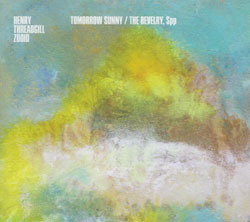
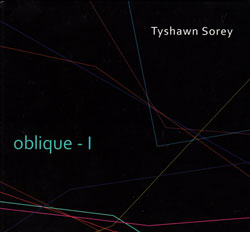
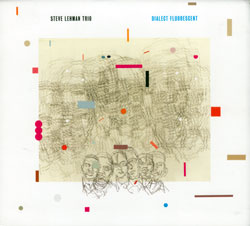
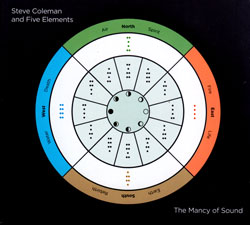
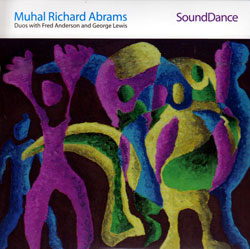
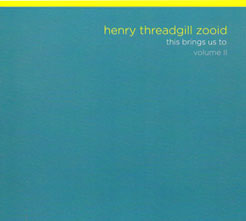
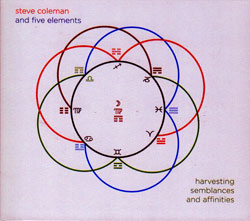




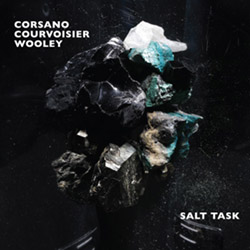
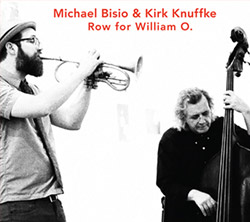
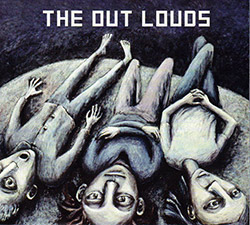
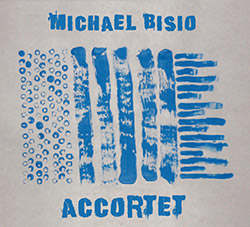

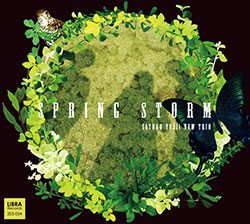

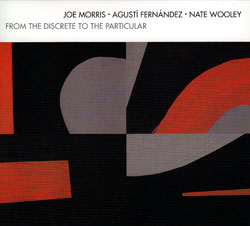

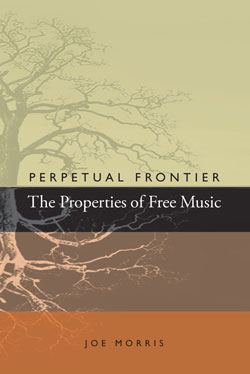

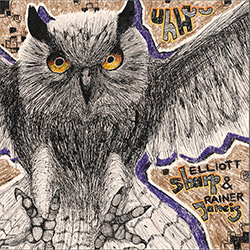
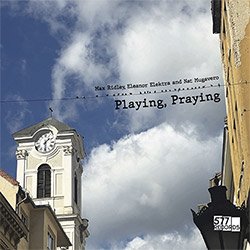

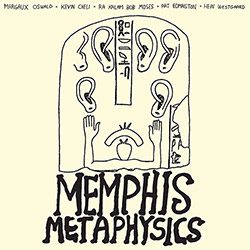
![Hoffman, Christopher: REX [VINYL]](https://www.teuthida.com/productImages/misc4/36934.jpg)
![Wrens: Half Of What You See [VINYL]](https://www.teuthida.com/productImages/misc4/37095.jpg)

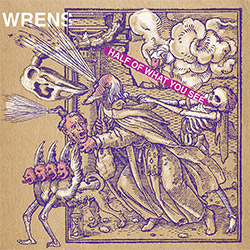
![Cartier, Pierre: Chansons de Douve [2 CDs]](https://www.teuthida.com/productImages/misc3/cartierChansonsDouve.jpg)



![Davies, Angharad / Burkhard Beins : Meshes Of The Evening [VINYL]](https://www.teuthida.com/productImages/misc4/36990.jpg)
![Bussmann, Nicholas / Sven-Ake Johansson / Yan Jun: Tea Time [Vinyl]](https://www.teuthida.com/productImages/misc4/36991.jpg)
![Feldman, Morton / GBSR Duo w/ Taylor MacLennan: Trios [6 CD BOX SET]](https://www.teuthida.com/productImages/misc4/37020.jpg)
![Williams, Jessica: Blue Abstraction: Prepared Piano Project 1985-1987 [VINYL]](https://www.teuthida.com/productImages/misc4/37080.jpg)
![Levin, Daniel / Laurent Estoppey: Freedom From The Known [VINYL]](https://www.teuthida.com/productImages/misc4/37091.jpg)
![Fagaschinski, Kai: Aerodynamics [VINYL 2 LPs]](https://www.teuthida.com/productImages/misc4/36992.jpg)
![Allbee, Liz: Breath Vessels [VINYL]](https://www.teuthida.com/productImages/misc4/37012.jpg)
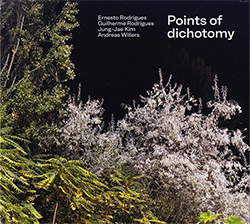
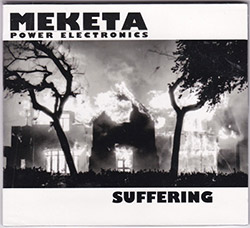


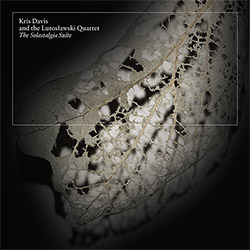
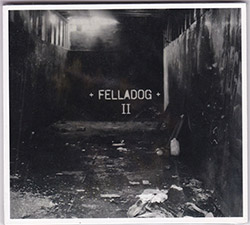






![Parker, Evan / Andrea Centazzo: Bullfighting On Ice! Live In Padova 1977 [VINYL]](https://www.teuthida.com/productImages/misc4/37064.jpg)
![Curran, Alvin / Andrea Centazzo / Evan Parker: Real Time [VINYL]](https://www.teuthida.com/productImages/misc4/37065.jpg)
![Curran, Alvin / Andrea Centazzo / Evan Parker: Real Time Two [VINYL]](https://www.teuthida.com/productImages/misc4/37066.jpg)
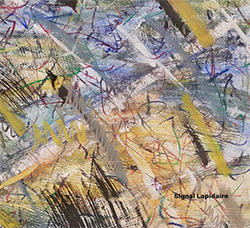

![Rodrigues, Ernesto / Jung-Jae Kim / Guilherme Rodrigues / Eric Bauer / Stephen Flinn: 5 In The Afternoon [2CDs]](https://www.teuthida.com/productImages/misc4/36957.jpg)



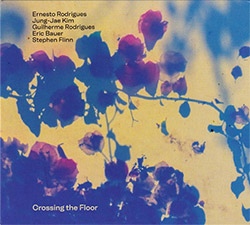





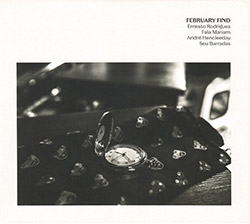
![Evans, Peter / Being & Becoming: Ars Ludricra [VINYL + DOWNLOAD]](https://www.teuthida.com/productImages/misc4/37026.jpg)

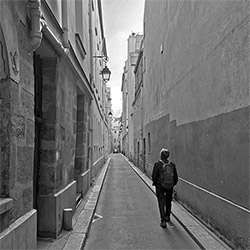
![Belorukov, Ilia / Alex Riva: Wrestling For Futility [CASSETTE w/DOWNLOAD]](https://www.teuthida.com/productImages/misc4/36994.jpg)


![Genthon, Anouck / Lionel Marchetti: Suite Blanche [2 CDs]](https://www.teuthida.com/productImages/misc4/36642.jpg)
![Toeplitz, Kasper T.: Erosions Programmees [CD + BOOKLET]](https://www.teuthida.com/productImages/misc4/36639.jpg)
![Gate, The : Almost Live [CASSETTE + MAGAZINE]](https://www.teuthida.com/productImages/misc4/36836.jpg)






![A Magic Whistle: The Solar Cell [VINYL]](https://www.teuthida.com/productImages/misc4/36658.jpg)

![McGee, Hal: Columbus Expedition [Cassette w/ Download]](https://www.teuthida.com/productImages/misc4/36650.jpg)


![Jaeger, Kassel: Fernweh [VINYL 2 LPs]](https://www.teuthida.com/productImages/misc4/36541.jpg)




![Frey, Jurg : Composer, Alone [3 CDs]](https://www.teuthida.com/productImages/misc4/36927.jpg)








![Frey, Jurg with ensemble]h[iatus: Je Laisse A La Nuit Son Poids D](https://www.teuthida.com/productImages/misc4/36988.jpg)




![Pisaro-Liu, Michael: Within (2) / Appearance (2) [2 CDs]](https://www.teuthida.com/productImages/misc4/36831.jpg)










![Musicworks Magazine: #151 Summer 25 [MAGAZINE + CD]](https://www.teuthida.com/productImages/misc4/36559.jpg)

![Brown, Dan / Dan Reynolds: Live At The Grange Hall [unauthorized][CASSETTE]](https://www.teuthida.com/productImages/misc4/36245.jpg)

![Zorn, John: The Song of Songs [CD + CD BOOK]](https://www.teuthida.com/productImages/misc4/36923.jpg)

![Coultrain: Mundus [COLORED VINYL]](https://www.teuthida.com/productImages/misc4/33056.jpg)
![Hprizm: Signs Remixed [COLORED VINYL]](https://www.teuthida.com/productImages/misc4/30635.jpg)
![Halls Of the Machine: All Tribal Dignitaries [CASSETTE w/ DOWNLOAD]](https://www.teuthida.com/productImages/misc4/36134.jpg)



![Koenjihyakkei: Live at Club Goodman [2 CDs]](https://www.teuthida.com/productImages/misc4/36111.jpg)

![Sorry For Laughing (G. Whitlow / M. Bates / Dave-Id / E. Ka-Spel): Rain Flowers [2 CDS]](https://www.teuthida.com/productImages/misc4/35985.jpg)

![Rolando, Tommaso / Andy Moor : Biscotti [CASSETTE w/ DOWNLOADS]](https://www.teuthida.com/productImages/misc4/36106.jpg)


![Electric Bird Noise / Derek Roddy: 8-10-22 [CD EP]](https://www.teuthida.com/productImages/misc4/35970.jpg)








![Elephant9 : Mythical River [VINYL]](https://www.teuthida.com/productImages/misc4/34624.jpg)



![Elephant9 with Terje Rypdal: Catching Fire [VINYL 2 LPs]](https://www.teuthida.com/productImages/misc4/35355.jpg)
![Coley, Byron: Dating Tips for Touring Bands [VINYL]](https://www.teuthida.com/productImages/misc4/17906.jpg)

![Lost Kisses: My Life is Sad & Funny [DVD]](https://www.teuthida.com/productImages/misc4/lostKissesDVD.jpg)